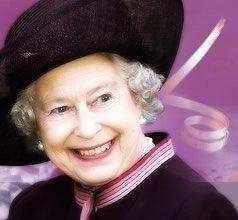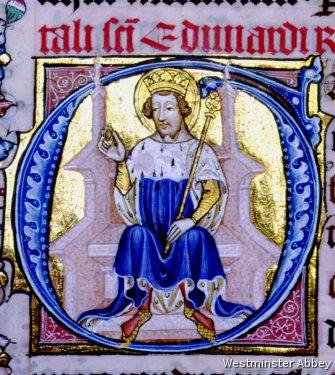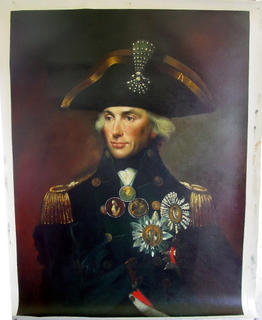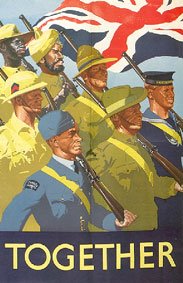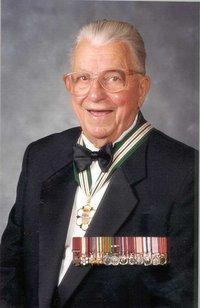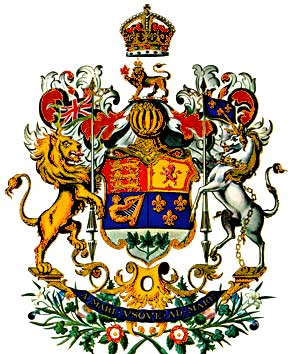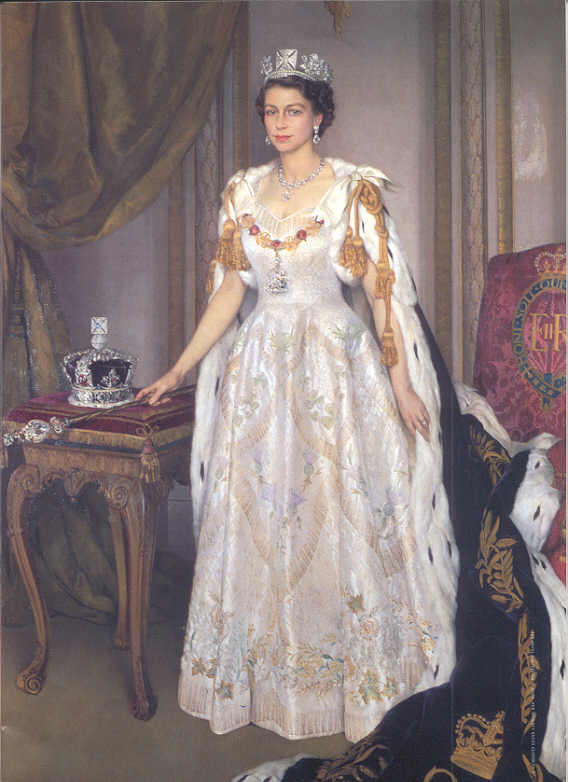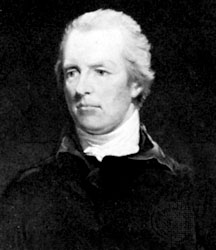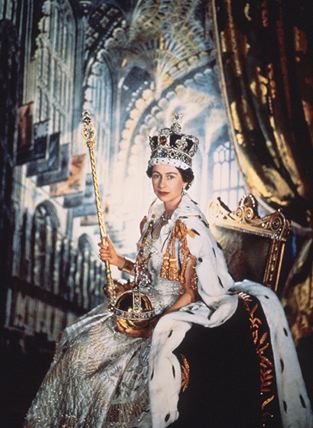[+] HONOURING OUR PATRON, SIR WINSTON CHURCHILL, VICTOR OF THE ENGLISH-SPEAKING PEOPLES
[+] HONOURING OUR QUEEN, ELIZABETH THE SECOND, ON THE 80TH YEAR OF HER BIRTH (1926 - 2006)
[+] HONOURING OUR KING, SAINT EDWARD THE CONFESSOR, ON THE 1000TH YEAR OF HIS BIRTH (1005 - 2005)
[+] HONOURING OUR HERO, LORD NELSON, ON THE BICENTENNIAL OF THE BATTLE OF TRAFALGAR (1805 - 2005)
[+] HONOURING OUR SONS, THE QUEEN'S COMMONWEALTH SOLDIERS KILLED IN THE 'WAR ON TERROR'
[+] HONOURING OUR VETS ON THE 150TH ANNIVERSARY OF THE VICTORIA CROSS (1856 - 2006)
A wise general rule of thumb I make a point of living by is not to blog about work. Normally what one does with his own private time is nobody else's beeswax, but blogging as a private hobby has one minor drawback to this way of looking at things: it's so totally in the public domain. And because it's so totally out there for public consumption, it behooves us to be prudent about what we say and how we say it. In fact, when it comes to our work, it's best we don't say it at all.
Today, however, I'll make an exception, for yesterday in my capacity as an advisor to the government of the day, I attended a sitting session of the Executive Council of Ontario behind closed doors witnessing a government operating in accordance with the unwritten conventions of the Westminster system. Only a tiny fraction of us ever get the privilege of being a participant at such a proceeding, but there I was sitting at the Cabinet table at Queen's Park for about 30 minutes, observing ministers of the crown across from me debating the merits of some Order-in Council, the effect of which would have repercussions for some small town, if some ministry wasn't granted the authority by the Lieutenant-Governor in Council to provide some sort of assistance.
As this debate was going on, I was struck by two things: Both how apolitical it all seemed and how humbled I felt being a part of it. One disadvantage for having a great deal of respect for our traditional everyday institutions, is that one can feel awestruck by the unfamiliar surroundings of people wielding power before your very eyes, even intimidated by it. I couldn't help but notice how the large and lovely 1950s portrait of Queen Elizabeth II over the absolutely gorgeous fire mantel offered an immense dignity to the proceedings. The 18th century red-coat battle scene on oil canvass along the entire length of one oak-paneled wall of the cabinet room added to the atmosphere. It felt so British in that room; that gentleman's den, that I imagined lighting a cigar right then and there and inviting the ministers for a drink over at the marble fireplace. The fact that I was a closet Tory in a room filled with Liberal ministers didn't for once even enter my mind. That these were the same folks that just a couple years earlier had raised the taxes of 12 million provincial citizens just weeks after boldly pledging that they would not, also did not enter my mind. All was forgotten. I was enjoying my moment.
I could tell that it was different for most everyone in the room. I could tell that some political staffers were getting off on the sheer power of it all, that some saw it rewarding in a strictly professional and policy sense and that few, if any, actually felt the reverence of the occasion like I did, or appreciated the long-standing British democratic traditions that inspired it. But then again, I was green to the proceedings. Unlike them, I was a little awestruck. I took it all in even as I anticipated some demanding question at any moment from a minister or even the premier. None came. Cabinet had performed it due diligence on the strength of my briefing note. It was over so quickly. What a privilege and an honour to say the least. To be in the service of Her Majesty The Queen.
Honouring Captain James Cook (1728-1779), British Navigator and World Explorer
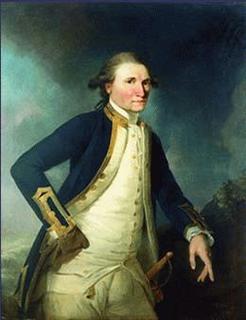 The Australian Flag Society and it's President, Nigel Morris (fellow Monarchist Author who takes Cook as his namesake) is pushing for recognition of an August 22 Australian national holiday in honour of Captain Cook. And with good reason for it was Cook who wrote in his journal on August 22, 1770:
The Australian Flag Society and it's President, Nigel Morris (fellow Monarchist Author who takes Cook as his namesake) is pushing for recognition of an August 22 Australian national holiday in honour of Captain Cook. And with good reason for it was Cook who wrote in his journal on August 22, 1770:"I now once more hoisted English Coulers and in the Name of His Majesty King George the Third, took possession of the whole Eastern Coast [of New Holland] from the above Latitude down to this place by the name of New South Wales."
—from Capt. Cook's Journal, Wednesday, 22 August 1770
As the AFS notes on its website:
"Captain Cook Day is a celebration of a humble, hard worker who achieved hero status through total dedication to a great cause. In Australia, as in Hawaii, he should be treated as a "God-like" inspiration for our young people to model themselves on.
Captain Cook was indeed a man ahead of his time, seeing beyond his own culture. On the Aborigines in Australia, he wrote "In reality they are far more happier than we Europeans; they are wholly unacquainted with the superfluous conveniences so much sought after in Europe...the Earth and sea of their own accord furnishes them will all things necessary for life"."
As for his extraordinary seamanship, Lord Palliser, Cook's superior in the Navy, wrote that he was:
"... the ablest and most renowned navigator this or any country hath produced. He possessed all the qualifications requisite for his profession and great undertakings ..."
And so he was, the Englishman who charted out the great Commonwealth of today, from Quebec to Australia, to the islands of the Pacific all the way up to the west coast of Vancouver Island in present day Canada. Captain Cook lived a life of setting suns, but it was a sun that in the end could not set on his greatest of achievements - securing an empire for Britain the world over.
The debate concerning the multiple (contradictory) loyalties of Canada’s vice-regal designate sparked an interesting column in the National Post this morning on the Commonwealth by the conservative stalwart, George Jonas. Says Jonas: “Fancying a hidden anglophilic agenda (or perhaps a francophobic one) behind my ruminations [that the G-G cannot be both loyal and a citizen of France], a reader responded with an interesting question. Would Mr. Jonas be concerned… if Ms. Jean were a dual citizen of the U.K. and Canada?” To this Mr. Jonas responds, “I wouldn’t be as concerned”, and then goes on to provide a ranking index of national compatibility:
1. United Kingdom (least concerned for obvious reasons)
2. France (though a republic, homeland of one of Canada’s founding peoples)
3. Australia, New Zealand and other Commonwealth Realms
4. Aspirant Commonwealth democracies in Asia and Africa (i.e., India)
5. United States (almost indistinguishable though regional economic interests clash)
6. Western Europe nations
7. Eastern Europe nations…
Dead Last. North Korea (“a Canadian-North Korean G-G would be scraping the bottom of the barrel”).
A few observations on this: First, I have a really hard time swallowing France above the United States in the no-conflict-department (though I can understand why this might be the case for French Canadians). Common sense and our own common long-term interests imply that our foreign policy objectives should ostensibly be aligned with America, not France, since the latter is predominantly focused with its own vainglorious pursuits, rather than a serious commitment to ridding the world of its residual wickedness.
Second, how are Canadian loyalties different from the UK’s, if our mutual undivided allegiance is to the same Queen? The only way to say that they would be different at all would be to prove that the Crown itself is somehow divisible. Yes, the Queen in right of Canada, but the Queen in right of Australia is ultimately the same Queen. So is the Queen in right of Ontario. As is the Queen in right of Queensland. One person. Multiple hats.
Third, the Crown Commonwealth countries should all be lumped under one umbrella, since there is no difference between the UK, ANZ and the gentile Commonwealth realms of the Caribbean. As constitutional monarchies, we all share the concept of the Crown and our passports invoke the name of Her Majesty. One wonders why we don’t just formalize these similarities and reciprocate the recognition of joint citizenship if we share a singular devotion and allegiance to the same Sovereign.
As Jonas puts it, the affinity between our countries is “current as well as historical. It includes the official language of Canada’s majority and membership in the British Commonwealth. [Our] laws derive from the same legal tradition. The majority of [our] inhabitants come from the same Anglo-Celtic mix of ethnic stocks. [We] share not only the memories of common causes and battle-forged alliances, but a plethora of customs, institutions, civic habits and current political interests. Last but not least, there’s the balm of precedent: Canada used to be British, and a number of Canada’s governors-general were Brits.”
I leave you with this thought: George Jonas came to Canada as an immigrant from Hungary in 1956. So how does he square his love of ancestral homeland with that of his adopted country? He explains it this way: “A person can be in love with two (or more) people but can be faithful to only one…Affection can be shared, but fealty cannot…Loyalty isn’t divided. If it is, it isn’t loyalty.”
Jonas gets it. Too bad so many others don’t.
Our thanks to Griffith and Giles for bringing to our attention this 60th Anniversary insult to veterans the Commonwealth over. The Australian appears to have dishonoured itself with this one, coming on the very day (August 15) the Japanese surrendered and brought to a close World War II. The author appears to be one of those "what if" nuts, whose thesis violates pretty much everything this blog stands for:
As the world is rediscovering in Iraq, even when armies flourish the banner of freedom they spread death and destruction on a wide scale. And as we are also discovering anew, rarely if ever do political leaders achieve the high-minded purposes that they propound when taking their countries to war.
Yet we continue to march to the drum that was set beating in 1939, as leaders invoke the example of Winston Churchill to ensure an acceptance of war and its consequences. And a new generation gets set to count the cost.
You are all encouraged to register your disgust below. Please keep the ridicule to a maximum.
 As history has repeatedly shown throughout the sixty years henceforth, in the days leading up to, and including, December 7, 1941, the official military headdress of the Imperial Japanese High Command was the dunce cap. Without any doubt, the planning and execution of the Japanese naval attack on the American base at Pearl Harbor ranks as one of the greatest acts of colossal and premeditated stupidity ever achieved by men in uniform. Not even the Nazi invasion of the Soviet Union was as recklessly foolish, and Hitler’s declaration of war against the United States on December 8, 1941, though just as dumb, at least comes attached with a credible defense: He was psychotically self-delusional and harboured all the characteristics of a madman.
As history has repeatedly shown throughout the sixty years henceforth, in the days leading up to, and including, December 7, 1941, the official military headdress of the Imperial Japanese High Command was the dunce cap. Without any doubt, the planning and execution of the Japanese naval attack on the American base at Pearl Harbor ranks as one of the greatest acts of colossal and premeditated stupidity ever achieved by men in uniform. Not even the Nazi invasion of the Soviet Union was as recklessly foolish, and Hitler’s declaration of war against the United States on December 8, 1941, though just as dumb, at least comes attached with a credible defense: He was psychotically self-delusional and harboured all the characteristics of a madman.Granted, hindsight is 20/20, but so sometimes is foresight – this being one of those times. It doesn’t take a terrible prescience of mind to know that one should not attack a more powerful foe, particularly one as powerful, geographically isolated and untapped in industrial might as the United States. Even if they were completely successful and had knocked out America’s carriers in the Pacific as they had anticipated, did they actually believe they could have done so permanently? If they did so based on seeking only a temporary advantage, how could they convince themselves that consolidation of Japanese power in the Far East, would ever be a match for the consolidation of American power in the Pacific? If they believed we would sue for peace rather than engage in a protracted titanic struggle for victory, what in our history ever gave them the idea that we had no honour?
That being said, only hindsight can give us the actual numbers. Between 1942 and 1945, the Imperial Japanese Navy managed to commission an additional 13 carriers, a feat possible for the most part without any kind of aerial bombardment or harassment of their industrial base. In the same period of time, the United States commissioned 137, a staggering ten-fold advantage in the ability to project long range naval power and transport large armies where needed. Though VJ Day is remembered as August 15, 1945, and the formal surrender took place a couple of weeks later on September 2, history has always shown that the Japanese effectively capitulated on December 7, 1941, “a date that will live in infamy”. For on that day, the Japanese surrendered their minds.
One of the most endearing qualities of British humour, and oftentimes britishness in general, is its somewhat Monty Pythonesque penchant for understatement (Flashback to the 1975 Holy Grail: No arms, no legs... "It's Only A Flesh Wound!" cries out the black knight to King Arthur, completely oblivious to his hopeless predicament). Flash back further to 1879 and the slaughter of British Forces in South Africa, where a record 11 Victoria Crosses were won in a single military engagement: "Bit of a sticky wicket, old chap," says the colonel as the Zulus wipe out his regiment at the Battle of Isandhlwana. Well, yes, that’s one way of looking at it, if by sticky wicket you are referring to a rather tricky problem or difficult situation.
And so it is with Her Majesty’s representative in Canada. If England had a Governor-General and Prime Minister Tony Blair recommended Sinn Fein’s Gerry Adams to the post, I wonder how the English would feel? I wonder if they would question his loyalty to Britain? I wonder if they would so forgive his terrorist sympathizing of yesteryear, that they would elevate him to be their own viceroy? Irishman. IRA links. British separatist. Queen’s representative in England? I know the British have a record of tolerating the intolerant, but c’mon. Luckily this would never happen in England because Her Majesty, after a burst of incredulous horse laughter, would tell Mister Blair to get serious in a huge hurry.
Canada’s vice-regal designate happens to be a French citizen from marriage to our future vice-regal consort, Monsieur Lafond. France is apparently in the throws of revoking their citizenships based on the untenable situation of a Frenchman and Frenchwoman representing the Queen of England (you know I meant the Queen of Canada, but forgive me if the French don’t see it that way). So much for the aspirations of the EU. To make matters even more interesting, our vice-regal designates are allegedly Quebec separatists, who so far have not volunteered any information that would suggest otherwise, leading many to speculate that they voted yes in the 1995 referendum on Quebec independence. M. Lafond is apparently a terrorist FLQ (Front Liberation du Quebec) sympathizer, stating that he collaborated with one such individual in making a documentary film, and hired another to undertake carpentry work in the family home (one Paul Rose who murdered a Quebec minister in 1970 and assisted in the kidnapping of a British diplomat). Oh my. What a fascinating foreign choice these pair make to represent all that is best about our country, to faithfully represent Canada and the Crown. It would seem that the Prime Minister has put our most Gracious Queen in a most embarrassing position.
Bloody 'ell. We're all in a bit o’ sticky wicket here, eh.
“Commonwealth Free Trade: Challenges and Opportunities”
An address by
Brent H. Cameron
(Author – “The Case for Commonwealth Free Trade”) to the
Royal Commonwealth Society - Toronto Branch
Toronto and North York Hunt Club
1355 Kingston Road
Scarborough, Ontario
August 7, 2005
Ladies and gentlemen, first I would like to thank the Hon. Sinclair Stevens for his generous introduction, and making me sound far more accomplished than I really am. I also want to thank Michael Frederiksen and the Toronto branch of the Royal Commonwealth Society for their invitation to speak to you today. Your kind welcome to my wife, Jodi, and I, is greatly appreciated.
The topic I have chosen for today is “Commonwealth Free Trade: Challenges and Opportunities.” And although I would never portray myself as an expert in economics or international affairs, like most people, I do possess knowledge of a few things.
It was this basic understanding that prompted me to want to write “The Case for Commonwealth Free Trade” and to learn even more about the potential of such a grouping. That process not only served to educate me on the subject, it also reinforced many of the views I held, and helped me to develop them further.
The “case” I speak of is not unlike any other case to be made - in law, in politics, or in business. Any of these cases stands or falls on evidence. The more evidence you have, the better – especially if that evidence is compelling and immediately makes sense to those who sit in judgment.
My search for evidence came from simply observing the world in which we live, and the kinds of debates we have – both here in Canada and elsewhere.
What struck me were the patterns to these debates, the same concerns being expressed, and how the answer to them all seemed to lie in a particular approach. Again, borrowing the jargon of the courts, we can break this case down to two parts – motive and opportunity. First, the motives.
We see a world becoming increasingly dominated by larger economic powers and trading blocs, such as the United States, the European Union, Japan, and China. We see their power in protecting their political self-interest when it comes to negotiations in the World Trade Organization over fundamental trade disagreements, particularly in agricultural commodities.
We see our own access to the American market lay vulnerable to political pressures and protectionism. The ongoing dispute over softwood lumber, and the protracted resolution to the closure of the border to Canadian beef illustrate that while the vast majority of our dealings are amicable, free trade is not necessarily synonymous with fair trade.
Beyond this, we see that any reaction on our part must be tempered by the knowledge that over 80% of our exports are dependent on this one particular relationship. And again, you do not need to be an economist or a captain of industry – and if there are any of you here who match that description, I sincerely apologize – but you don’t need to be either to understand how that reliance impacts the choices we make as a country.
If a circuit court judge in Billings, Montana can rule in such a way as to cost Canada’s cattle industry hundreds of millions of dollars, then is it not incumbent on us to investigate better ways to trade? Canada, however, is not unique in its vulnerabilities in the new global economy.
Caribbean nations, whose textile industries were once protected by the Multi-Fiber Agreement, now must compete toe-to-toe with the emerging power of China. Lower agricultural commodity prices and a depressed tourism industry, post 9/11, do not give these countries many other promising alternatives.
The nations of Sub-Saharan Africa have endeavoured for quite some time to reform their economic and political systems. With the notable exception of Zimbabwe, they are making progress. Indeed, there are at least a half-dozen nations in this region that are moving toward their “millennium development” goals. Tanzania, for example, is putting in place the means to guarantee primary level education for all its citizens.
The demand placed upon the West, in return for these efforts, is the simple request of “trade, not aid.” Without the means to earn money abroad, these states will remain dependent on loans and largesse from the developed world.
Australia and New Zealand, economically successful in the world, also recognize the enormous challenge facing them. Despite what growth and efficiency they have gained from their own free trade agreement, both must grapple with the challenge of being part of a region dominated by China and Japan, and understand that the future brings the need to make hard choices.
Britain’s conflicted relationship with its EU partners continues to be a source of endless debate and discussion. Some of its leaders remain passionately “euro-friendly”, and yet even they are unwilling to scrap the Pound for the Euro, or give up the rebate negotiated by the Thatcher government in the early 1980’s, or accept the continuation of a generous agricultural scheme that benefits mainly French farmers at the expense of not only Britain, but the achievement of a worldwide comprehensive trade deal to end farm subsidies – the lynchpin of the current round of WTO negotiations. Many British critics of the EU still support economic ties with Europe – it is the parallel political project that they are skeptical of.
Then, of course, there is the position of India, whose economy is growing at a rate exceeded only by China’s. It possesses all of the necessary attributes to match, or exceed, its Asian neighbour, save one. The investment banking firm Goldman Sachs reported that capital inflows into China were two and a half times greater than into India, despite India’s democratic political system, a more transparent capital market, a more advanced legal system, and a banking sector with fewer bad, or underperforming, loans.
These, and many other points I have not mentioned, represent a strong and compelling motivation for a new economic partnership within the Commonwealth. But to complete the case, we need to show opportunity. Well, let me share with you some quick facts.
One, the Commonwealth possesses 1/3 of the world’s population, spread through 53 countries on every habitable continent on the planet.
Two, Commonwealth members account for 20 percent of the world’s commerce, and 40 per cent of the membership of the World Trade Organisation.
Three, Commonwealth members are represented in virtually every international organisation in existence – the UN, the G8, the OECD, the Organisation of American States, NAFTA, the European Union, ASEAN, NATO, to name but a few.
Four, we share a common language of business, education, and scientific research. We also share legal and political structures inspired by English common law, and the Westminster Parliamentary model.
We share membership in the Commonwealth, whose range of activities run the gamut from fostering good governance, to promoting health and education, to press freedoms and civil society, to capacity building.
Our nations cooperate and coordinate on various levels – between governments, between business actors and academic institutions, and among NGO’s and other groups involved in the promotion of civil society.
Lastly, we have some of the fastest growing economies in the world – economies with enormous untapped potential. If you wish to take anything from what I say today, these two points should be it.
Research done by Sarianna Lundan and Geoffrey Jones on behalf of the Commonwealth Secretariat in 1997 had detected evidence of a “Commonwealth Effect” in trade relations. That is, even without formal free trade agreements, Commonwealth economies are naturally drawn together for many of the reasons I just cited. The Commonwealth Business Council estimates that these shared attributes cut the cost of doing business by more than ten per cent compared to dealings with non-Commonwealth nations. According to Savita Bailur of the Commonwealth Policy Studies Unit, the results suggest “the Commonwealth can indeed be thought of as a de facto trade and investment network.”
Now, just translate this propensity to its full potential. Canada’s per capita GDP sits at around US$28,000. If a Commonwealth Free Trade Association were to have full participation from member states, and develop to such an extent as to raise its per capita GDP to only US$21,000, this group’s economy would be valued in excess of US$45 trillion.
Putting this into perspective, a CFTA would be more than the equivalent of adding the economies of the United States and the European Union together – and doubling it.
So we have motivation, and we have opportunities. The only question that remains is do we have the will? I suppose that the answer to that question depends on whether we see the opportunities inherent in a new trading regime, or we are sufficiently concerned about the challenges we face if the status quo is left unchanged.
In the end, I likely offer more questions than answers, but that is how it should be. After all, this is the beginning of a debate, not the end.
Your organization already, has offered its contribution. The “Commonwealth Advantage” is a pragmatic response to the challenge, and whatever success you may have in its development, rest assured that you have already moved this debate forward. So often, it is through the actions of individuals and groups outside of government where we see the political agenda moved along.
If I do anything here today, I want to have convinced you that nurturing our Commonwealth ties is a relevant and worthwhile endeavour. It is not simply about the ancient symbols of the Monarchy, nor is it about some long held romanticized notion of Empire. Rather, it represents one of our best hopes at guaranteeing the prosperity we have today, and expanding its promise both here and abroad.
I am one of an increasing number of people who sincerely believe that strengthening the economic ties within the Commonwealth is a logical and pragmatic way of building a better Canada, a more inclusive model for globalisation, and a much more prosperous world.
Thank you.
Krista Janicki was kind enough to send me this great piece of patriotic English nostalgia. I can say nostalgia even though I'm too young to have grown up with it. But something definitely clicks; to the point where it feels a part of my yearning soul. I crave for it.
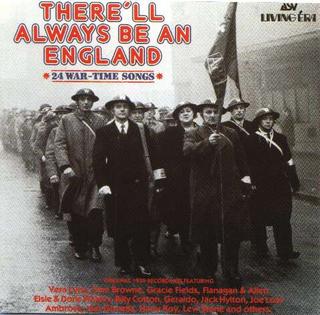
There'll always be an England,
While there's a country lane.
Wherever there's a cottage small
Beside a field of grain
There'll always be an England
While there's a busy street.
Wherever there's a turning wheel
A million marching feet.
 Red, white and blue
Red, white and blue What does it mean to you?
Surely you're proud
Shout it loud
Britons awake!
The Empire too
We can depend on you.
Freedom remains
These are the chains
Nothing can break.
There'll always be an England
And England shall be free
If England means as much to you
As England means to me.
Our discussion on the new GG would not be complete without a link to the nodding commentary of the great David Warren, KGC. Some real doozies in this one, including delivering the "multicultural trifecta". Nobody despises today's run of the mill journalists more than this truly independently minded one. In this country, he is an extremely rare phenomenom. He's what I call a "Knight Grand Columnist".
For our contributors and readers in the UK, Australia and New Zealand, please identify for me your Knight Grand Columnists, so that I can add them under the appropriate sidebar folder.
In an open letter (appearing in the Aug. 5 National Post) to the new Governor-General designate, the Dominion Chairman of the Monarchist League of Canada, Mr. John Aimers, said something about big tent politics that I thought was quite revealing: "In stating that you wish to be seen as a citizen amongst citizens, may it be that this inclusiveness extends to monarchists - small “m” variety!" Revealing because it amounted to no less than a plea to be accepted and included in the New Canada, a plea for understanding, to be seen as a "small "m"" monarchist, i.e. a "moderate", not to be viewed as an anachronistic figure of fun, but as a relevant fixture in modern society. The League Chairman appeared eager not to be left behind, even if it meant sidelining the true believers and suggesting that Canada's big tent not extend to the outdated, big "M" monarchists like myself.
Which is perfectly fine by me - quite frankly, the last thing any big "M" monarchist would want is to get associated in any way with the big "L" Liberalism of postmodern Canada. At the end of the day, you either believe in who you are or you are nothing. What exactly is to be gained by joining the nonbelievers, even begging to belong? What the soft monarchists don't understand is that we are at the end of the line here; we have nothing left to negotiate, and nothing left to give. We simply cannot adapt the institution any further to become "relevant", to meet the endless needs of false progress and empty, feckless modernity. It is time to either fight or ditch the wagon.
Mr. Aimers' letter to the GG designate was striking because it was an admission that the country has passed us by, that we are now, and have been for some time, a de factor republic. Sure we go through the motions, but let's face it, much of the country no longer believes in the institution anymore, indeed has difficulty not mocking it. And much of those who do support it, believe in it for all the wrong reasons, such as the utter drivel that it makes us distinct from the Americans (note to the identity paranoids: the surest way to accelerate your demise as a country is to embrace your national desire to be contrary to the Americans in all things).
The bottom line: when it comes to the monarchy, you either get it or you don’t. Those who don’t get it probably never will, so no use wasting your time pleading, groveling, begging them to understand. To them, like the nation-state, a constitutional monarchy is incompatible with world community and a multicultural, leftist worldview. They are vandals and as such are intent on destroying what historical links remain for succeeding generations to enjoy. That they are our forefather’s trustees, that the ancient institution was passed down to them from the millennia and does not belong to them to do to it as they wish, matters not a wit to them. By siding with them we have everything to lose. By fighting them we do not. Might as well go big or stay at home.
 I’ve always thought there was something unseemly about a system where a government leader is de facto permitted to appoint his superior. It doesn’t matter how you dress it up, there’s a puppet quality to any position that owes its standing to a lower authority. There’s absolutely no way I would be a monarchist today, if the Queen owed her position in any way to her Prime Minister. Such indignity begets no reverence.
I’ve always thought there was something unseemly about a system where a government leader is de facto permitted to appoint his superior. It doesn’t matter how you dress it up, there’s a puppet quality to any position that owes its standing to a lower authority. There’s absolutely no way I would be a monarchist today, if the Queen owed her position in any way to her Prime Minister. Such indignity begets no reverence.Today’s political preference for GG illustrates this indignity just so, and the cynicism underpinning it. The Liberals stand a shot of being almost completely wiped out in Quebec due to their gross misconduct and fraudulent political activities in that province. Even on the cosmopolitan island of Montreal, they’re damaged goods. They’re desperate. They need to do something bold to shore up their falling fortunes. Enter Michaelle Jean, a youngish popular Montreal television host and francophone, born in Haiti in 1957, to warm the hearts of Montreal immigrants and to further the cause of federal Liberalism in Quebec. The GG represents the Crown alright. The Liberal Crown.
The Dominion Chairman of the Monarchist League of Canada announced the Prime Minister’s decision as a “fascinating” choice. That’s about right. I’m fascinated and intrigued because I have no idea what her opinion of the role is. Is she loyal, is she even a monarchist? Will she continue along the path set before her, and declare herself to be Canada’s “Head of State” in direct contravention of the country’s written constitution? Will she contribute to the creeping regicide of Elizabeth II, as I wrote her predecessor did here? We don’t know the answers to these questions. We don’t know who she is. It’s a fascinating choice.
But it’s also a cynical choice. The Dominion Chairman can’t say that because defending the Crown has degenerated into just another political activity, something to lobby for, just another interest in the vast multitude of other concerns of state advocacy groups. The Liberals would say I am the cynical one because no matter what they do, there will always be those who distrust their motives. But give me one good reason why I should trust their motives. The choice is filled with every possible deliberate political calculation imaginable: young, woman, immigrant, urban, media, francophone, visible minority, beautiful,…just the thought of some jackass in the PMO ticking off the various boxes, makes me a little, rather ill.
Let’s face it; the wrinkled old wise waspy man from Beaver Creek doesn’t have the slimmest chance in hell of making it in the New Canada. The Liberals hate them, and everything they stand for. They should know the feeling is more than mutual. As for Madame Jean, in the end, only she can prove that Her Excellency was an excellent choice. To that end, The Monarchist wishes her well.
I am interested in hearing from people about my proposed constitution for a Crown Commonwealth Federation. It is posted on my blog Anglosphere Union Now. The First post in question is here.
After writing my brief defense of limited monarchy on The Monarchist blog, I got to thinking I was somewhat unfair to Pitt in that I agree that there are underlying questions that precede politics in any rational discussion. What follows is my rambling thoughts on the subject. Now from one point of view the underlying questions would include everything from the metaphysics forward. However I mean something narrower, those questions that though outside the direct realm of politics, must be discussed immediately prior to politics so that a discussion of politics can be fruitful. This is what one might call the metapolitics.
Before proceeding further a brief set of definitions is in order. By the metaphysics, I mean that which is logically prior to not only the physics, but to all knowledge. This is the realm of the basic axioms, of the formal identification of the propositions that are necessary and evident. By epistemology, I mean of course the theory of knowledge. By ethics, I mean the science of how man should act. By politics, I mean the science of how people should act in society, specifically how they should be governed.
Now I think that the Metapolitics, must begin with a brief look at the ethics. To discuss how people should act together, it is necessary to ask what should be the values of individuals in a broader sense. I have no desire to go into an in depth discussion of ethics, so I am going to simply start the discussion of metapolitics with a proposition that I believe to be true. To wit, that man should and, to the extent that they are acting rationally, men do act to preserve their own life. Now people don’t always act this way and their maybe times when it is moral to risk or even lose one’s life, but in general I hold that the standard by which one judges the actions of individuals and groups is weather they act to preserve or destroy human life.
Thus I consider electoral democracy which resolves political issues without civil war and capitalism which produces an abundance of food, clothing and other wealth to be good and communism, fascism, and other forms of dictatorship which produce civil unrest, poverty and mass death to be evil. Having established (for the purposes of discussion) a standard of value we can rationally evaluate political systems and can proceed to ask what are the basic principals of politics?
Another question that must be asked prior to a discussion of politics is, what is the nature of man? If we want to know how man should act in society, we should know what man is. Now I hold that man is an animal that can think rationally and that rational thought and actions taken on the basis of thought are man’s basic means of survival.
If human life is the standard of human action, then I hold that the purpose of society is also the furtherance of human life. That is, that people associate for their survival, procreation and happiness.
Now I think we can state the first rule or law of political association. If we associate for the furtherance and protection of our own lives, then the first rule of that association is that we agree not to kill one another. If we all just grabbed a knife and killed one another when the whim struck us, then social life would not be fruitful, it would not promote our lives. Every fruitful – legitimate society must begin with this proposition that we agree not to commit the act of wantonly taking the lives of our fellow humans. This is what I mean by the right to life.
If it is true that thought and action based on though are the primary means of human survival, and if we associate for the furtherance and protection of our own lives, then a rule of association, and a fundamental one, is that we agree that we will not stop other members of society from thinking and taking action based on that thinking in so long as they do not: violate the right to life, violate the right of other people to think and act, or violate one of the other fundamental principals of association. If we stopped our fellow men from hunting, farming, weaving, building houses, inventing new ways to produce things, thinking new thoughts, expressing those thoughts, in general taking the actions necessary to sustain their lives, then social life would not be fruitful. This principal that people have a right to think and act, is what I mean by the right to liberty.
Since the right to liberty would be without value if the consequences of a persons thought and action were not protected, a corollary principal is that person has the right to the fruit of their thought and action. If we could watch another clear and plant a field and then claim the produce as our own, or if we could take the tools that another has created, then social life would not be fruitful, it would not serve to protect human life. Every fruitful – legitimate society must protect in one form or another the right of people to the fruit of their labor, this is what I mean by the right to property.
These three principals of association, the right not to be killed, the right to take actions necessary to preserve life, and the right to the fruit of those actions are the fundamental principals of politics. If a society is to be fruitful, if it is to promote human life, it must hold the principals of life, liberty, and property to be as sacred as the church catholic holds the doctrine of the holy trinity.
A corollary of these first three principal is a fourth the right to self defence. Since I have right not to be killed by my fellow men, I have a right to defend my self by the use of force, even up to the use of deadly physical force in the defense of my life. Since the rights to liberty and property are corollary principals necessary to the preservation of life it follows that the violation of these rights are also cause for the use of defensive force and sometimes deadly force. For example if a person was taking property that represented the difference between life and death the victim would have the right to use deadly force to halt the crime.
Here however we reach a problem. A person stops a man from taking some action is he interfering with the first person’s liberty or is he defending his property? A person is dead, did the killer commit murder or did he kill in self defense? How is this to be determined? A person attempts to commit murder, the victim uses force of a potentially lethal variety in self defense, the aggressor’s relative comes to the aggressor’s defense perhaps in all good conscience not having seen the initial act. Clearly without a system of objective tribunals to determine the facts, society is perpetually on the verge of braking down into gang warfare. This is in fact the state man existed in for most of human history, in bands or tribes small enough that everyone knew what everyone else was doing so that disputes could be decided by the band.
In order for society to advance beyond the stage of a hunter gatherer band, tribunals for the objective determination of the facts and the application of the principals of association must exist, and a force strong enough to carry out the judgment of the tribunal (at least most of the time) must exist. Further if people are not to live in fear that they are acting in a fashion that the tribunals would find objectionable, there must be a person or organization for the rendering of the decisions down into a code of rules that if followed will keep one from unknowingly committing a crime. The thing that exercises these three functions, the judicial, the executive, and the legislative is what is called the state.
These functions can be organized in a number of different ways which are different forms of government. There are three classical pure forms discussed by the ancients.
These three functions could be exercised by one man alone or by one man with subordinates to assist him. This would be an absolute monarchy. All three functions could be exercised by a council of wise men or local leaders by themselves or with subordinates to assist them in which case you would have an absolute aristocracy. If all three functions are exercised by the whole people directly then one has an absolute direct democracy.
The classical writers all spoke against these three pure forms because they believed they inevitably devolved rapidly into a corrupted form: Monarchy into Dictatorship, Aristocracy into Oligarchy, and Democracy into Mob Rule. They believed a stable system would be one where the one, the few, and the many would all have some degree of authority.
For example, the executive authority could be vested in a Monarch who with his subordinates would enforce the rulings of the courts He could have the authority to nominate judges and could have a veto over legislation. A council of nobles could confirm or reject the men nominated as judges, act as the highest tribunal, and have part of the legislative authority. A council of persons elected by the freemen of the kingdom could hold part of the legislative authority and could raise money to support the state.
This is of course the classic form of the British constitution.
If instead an elected head of state was substituted for the Monarch and a council of representatives of regional governments were substituted for the council of nobles and the highest tribunal power was transferred to a supreme court, then one would have the constitution of the United States in its original form.
The question of how the various powers are best arranged is both interesting and important, but it is also perhaps beyond the topic I set out to discuss, since it is part of politics proper rather than metapolitics.
As the Anglosphere begins to organize itself, both the traditions of our past and the legitimate basis of state power must be explored. I hope this rambling discussion might be a step in that direction.
Sgt. Ernest Alvia ("Smokey") Smith, VC, CM, OBC, CD (1914 – 2005)
Smokey Smith of the Seaforth Highlanders was a Canadian recipient of the Victoria Cross, the highest and most prestigious award for gallantry in the face of the enemy that can be awarded to British and Commonwealth forces. He was the last living Canadian recipient of the Victoria Cross.
A brave era for this Dominion has come to an end. His regiment, the Queen's Own Highlanders, is playing the pipes.
Go here for a proper tribute. Go here for a CBC report of his last public appearance.
Farewell Smokey, and so long.
You may have heard that I'm a monarchist. A constitutional monarchist. An Anglomonarchist. Even a Christian monarchist. Not a decrepit and thuggishly corrupt, religiously totalitarian monarchist. Not to put too fine a point on making such a necessary distinction.
Which brings me to the House of Saud and the recent death of King Fahd. Not to worry, there's only 7,000 princes waiting in the wings to take over the place. That's 7,000 sugar daddies going about their daily routine of running a medieval theocracy, thwarting freedoms, hoarding the wealth, forbidding political opposition and media criticism, invading homes, violating privacy, detaining and torturing foreigners whenever it damn well pleases.
These are the Taliban in cleaner robes and nicer homes. Non-Muslim worship and proselytizing are strictly prohibited. Christian clerics, if discovered, are arrested, beaten and brutalized, and eventually expelled from the country. "Conversion is apostasy and punishable by death. Although private devotion is theoretically allowed, homes are raided if worshippers gather together. Christians have also been punished for blasphemy", according to a former US State Department official.
Oh, and did I mention the whole country is basically one giant incubator for Islamo-fascist terrorism against the infidel West. That's the proud legacy of the House of Saud. It is one monarchy this monarchist would be more than happy to do without.
 Today is Simcoe Day in the Province of Ontario, most acutely felt here in Toronto, where Major-General John Graves Simcoe of the loyalist Queen's Rangers founded the place as York (central Toronto where I currently call home) and established a military fort (Fort York) following the American War of Independence. It was a war in which Simcoe distinguished himself greatly, even though during the battle of Brandywine, he gave an order that set the course of history, when he told his soldiers not to shoot three fleeing Americans in the back. One of those Americans was George Washington, first President of the United States.
Today is Simcoe Day in the Province of Ontario, most acutely felt here in Toronto, where Major-General John Graves Simcoe of the loyalist Queen's Rangers founded the place as York (central Toronto where I currently call home) and established a military fort (Fort York) following the American War of Independence. It was a war in which Simcoe distinguished himself greatly, even though during the battle of Brandywine, he gave an order that set the course of history, when he told his soldiers not to shoot three fleeing Americans in the back. One of those Americans was George Washington, first President of the United States."The regiment suffered serious losses at Mamaroneck, Brandywine and Germantown until, on October 15, 1777 Simcoe was given command. Simcoe turned the badly mauled Queen's Rangers into one of the most successful British regiments in the war. Fighting as reconnaisance and outpost troops, they were never defeated in battle. One advantage they had was the fact that they were the first British regiment to wear green uniforms, as more suitable for purposes of camouflage than red. They did escort and patrol duty around Philadelphia (1777-8), fought in the Pennsylvania campaign, served as rearguard during the British retreat to New York (1778), fought at Perth Amboy, New Jersey--where Simcoe was captured but freed in a prisoner exchange 3 months later(1779-80)--, at Charlestown, South Carolina (1780), in the raid on Richmond, Virginia with Benedict Arnold and in other raids in Virginia(1780-1), and in the Yorktown campaign (1781). A point of pride for the regiment is that when the British finally surrendered at Yorktown in 1781, the "colours" (banner) of the Queen's Rangers were smuggled away, never to fall into enemy hands. Today those same colours are on display in Toronto in the officers' mess of the Queen's Rangers. As the finest Loyalist unit, they were awarded the title 1st American Regiment and enrolled in the British Army in 1782."
Simcoe was also the first Lieutenant Governor of Upper Canada, after it was newly established in 1791. He is most proudly recognized as the first Britisher to abolish slavery, some 25 years before the British Empire as a whole did so, and more than 50 years before the Emancipation Proclamation in the United States.
So how was Simcoe as a person? Apparently, he was a fathead, "not at all admired by the people who knew him; indeed, he was actively disliked by many for his imperious ways. He was a flighty, impractical dreamer ("He would become entranced with one glittering idea, carry it about for a while and drop it to go on with something else" . . . "a man whose energy overmatched his judgment") and a pompous, anti-democratic "snob of snobs" bent on installing an oppressive mini-aristocracy in Upper Canada with himself at the top."


